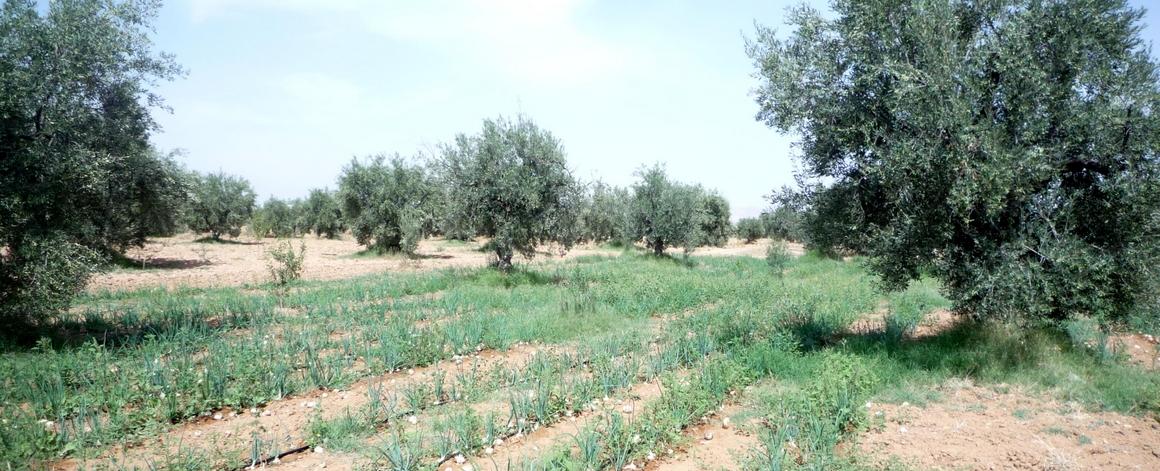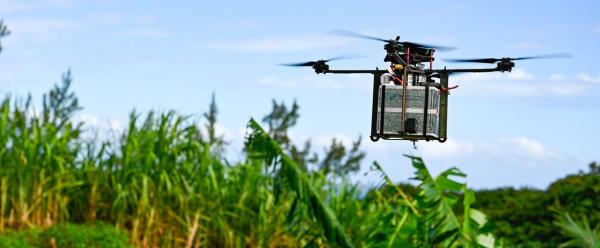Results & impact 10 October 2025
- Home
- Press area
- Press releases
- Links between diverse production and dietary diversity
Tunisia: a correlation between varied agricultural production and women's dietary diversity

Intercropping onions and olive trees in the Sidi Bouzid region, Tunisia. Varied crop production is a factor in dietary diversity © S. Dury, CIRAD
Agricultural households achieve food security thanks on the one hand to what they produce, and on the other to the income drawn from product sales. Dietary diversity is one aspect of food security, and reflects the nutritional diversity available to local populations. In this study, the researchers set out to pinpoint what determines a diverse diet. They conducted a survey of 290 women aged between 20 and 50, living in agricultural households in central-eastern Tunisia.
"The Jasmine Revolution, which launched the so-called "Arab Spring", began in late 2010 in the rural region of Sidi Bouzid, where farmers were suffering marked inequalities in terms of access to land and to irrigation", says Cédric Gaillard, an economics researcher at CIRAD and the article's lead author. "The local population is highly dependent on agriculture, and was also facing a rise in the price of staple foods, which are not produced in sufficient quantities locally. As a result, food insecurity was rising rapidly."
The surveys were conducted between November 2014 and January 2016, and were intended to provide information on the food situation for the region's women, a vulnerable group whose social status is often precarious.
Agricultural production is not very diverse, but diet is
The agricultural activities of the family farms surveyed primarily focus on oil crops (olive trees) and livestock production. Despite that lack of production diversity, the researchers observed that women in agricultural households had a sufficiently diverse diet, suggesting that their food was primarily obtained at markets. "We observed that markets in the governorate of Sidi Bouzid all offered a wide range of affordable foods", Eric Verger, a researcher specializing in nutrition at IRD and co-author of the study, points out.
A positive correlation
The links between diverse production and diverse diets are tenuous, but the researchers did observe a systematic positive correlation. "Above all, the originality of our study lies in the methodology, because we considered five production diversity indicators. Those indicators measured different aspects of diversity, such as direct access to a range of products by means of farming, or the diversity of sources of agricultural income", Cédric Gaillard adds. "Each indicator was positively correlated to women's dietary diversity. The link was faint, but systematic."
Dietary diversity for women is thus achieved by being able to buy what is available on markets and by consuming what is produced on their farms. For instance, it is women living on dairy farms who consume the most dairy products.
Diversifying farm production is therefore key to resilience, Cédric Gaillard explains: "As in other world regions, agricultural diversification boosts the nutritional value of women farmers' diets, and at least partly protects them against food price volatility".
The importance of level of education and household wealth
Agricultural jobs for women are still highly precarious in the region (where women are only classed as "agricultural labourers"), and the study highlighted the importance of education, which allows women to access jobs outside the agricultural sector. In addition to the diversity of food production, the diversity and level of income of women in farming households is intrinsically linked to a more diverse, better diet.
The Medina project was funded by the Agence Nationale de la Recherche from 2013 to 2017, and proposed an innovative "farm to fork" approach to food systems in the Mediterranean. Its work covered Tunisia and southeastern France, with the aim of reconnecting food with agricultural production and the environment. Several of the project's results can be consulted on line here.
Reference
Cédric Gaillard, Eric O. Verger, Sandrine Dury, Marie Claude Dop, Jalila El Ati. 2022. Farm production diversity and women’s dietary diversity: Evidence from central Tunisia. Plos One.



























